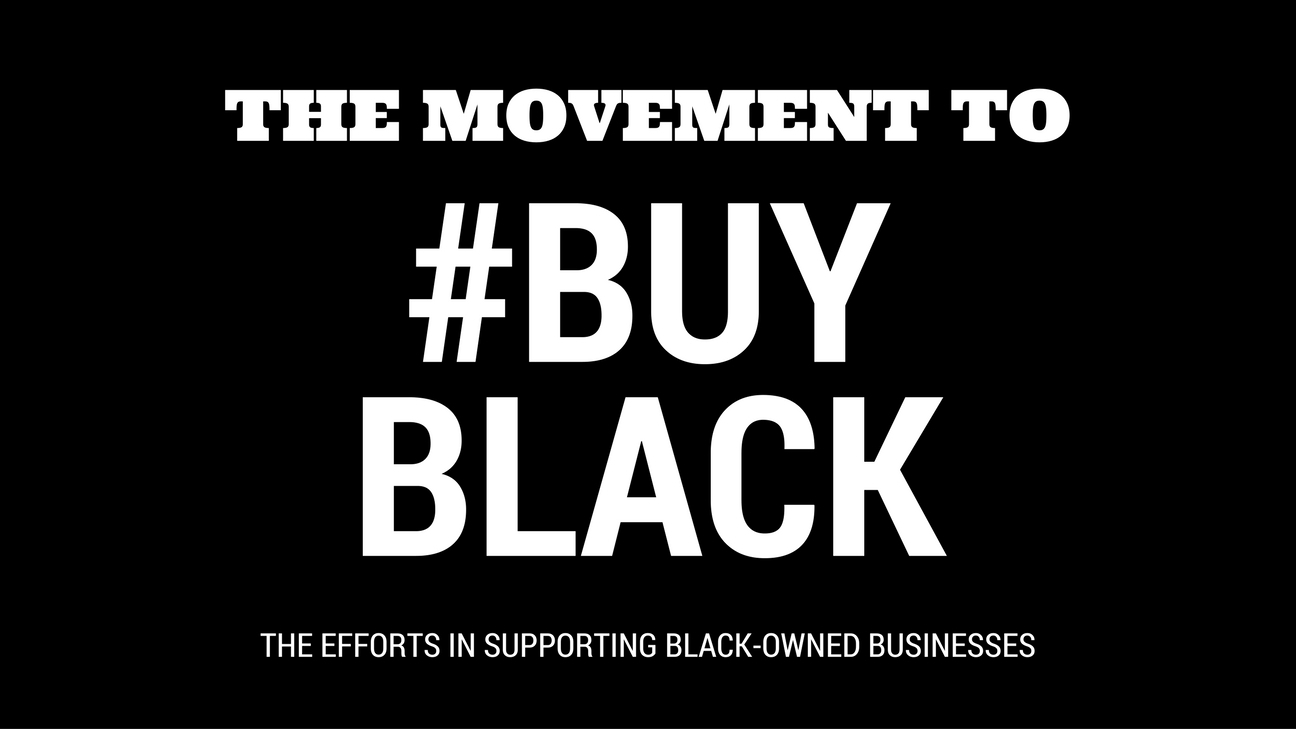This fall semester UMKC offered a class entitled “Social Action” that followed the teachings of Change! A Student Guide to Social Action by Scott Myers-Lipton. The students broke out into groups and spent the semester not only learning about social issues but actively trying to address them in any capacity they could. Group topics ranged from mental health, food insecurity, indigenous rights, and much more. One group in particular focused on buying black.
UMKC Undergraduate students Devyn Eason, Hannah Pham, Lanisha Stevens, and Leah Taylor explained that they wanted to support local black businesses, through both monetary means and awareness.
The concept of buying black is nothing new, it was pushed by leaders like Booker T. Washington, Marcus Garvey, and Dr. Martin Luther King Jr. to stimulate the economies of African American communities for years. Recently it was revived in many ways and given the name and subsequent hashtag #BuyBlack.
The students decided to dedicate their semester researching the issue and thinking of ways to help. Hannah Pham explains “Black businesses aren’t receiving a lot of support, although they contribute a lot to our economy. We as citizens within our community cannot support businesses that we may not be aware of.”
The impact of buying black is best understood by considering a single dollar. That single dollar can be put into the community when someone buys an ice cream from a black owned shop. That owner could use it to buy a blouse at another black owned shop, that then gives change to someone using the dollar and they go on to buy something else somewhere else. However, according to The Undefeated, “In the black community, a dollar only circulates for six hours. Compare that to some Asian communities, where the same dollar can circulate for up to a month. When you look at it that way, it’s no wonder why we’re not getting ahead like we should.”
A shocking point they focus on is that most black owned businesses do not even have employees. Most are owner owned and operated and some have volunteers staffing the business.
BLNDED Media reports that “According to the U.S. Census Bureau’s Survey of Business Owners (SBO), which is conducted every five years, over 90 percent of Latino and black firms do not have even one employee other than the owners. One new trend is the proportion of owner-only firms reaching a high of close to 98 percent for the sub-group of African American female-led businesses.” Furthermore, black female owned firms are losing revenue as the years pass. A Forbes article published that “American Express found that the gap is widening between the average revenue for businesses owned by women of color and those owned by non-minority women. For women of color, average revenue dropped from $84,000 in 2007 to $66,400 in 2018, while for non-minority businesses, revenue rose from $181,000 to $212,300.” This trend can spell disaster for women of color who own a business and who may be struggling already with the pandemic.
So what did the students choose to do? Apart from almost weekly presentations to the class, they created a list of local black businesses people can support, are visiting them personally, and vlogging their visits!
A fun, modern way of promoting the retention of the dollar in the community!
Two local Black and female owned businesses they wanted to shoutout include:
Matches Boutique on the Plaza (https://matchesboutique.com/)
UnLESHed+ (https://www.shopunleshed.com/)
To get into contact and keep up with the group email : ls2df@mail.umkc.edu
